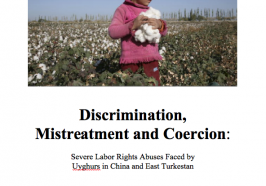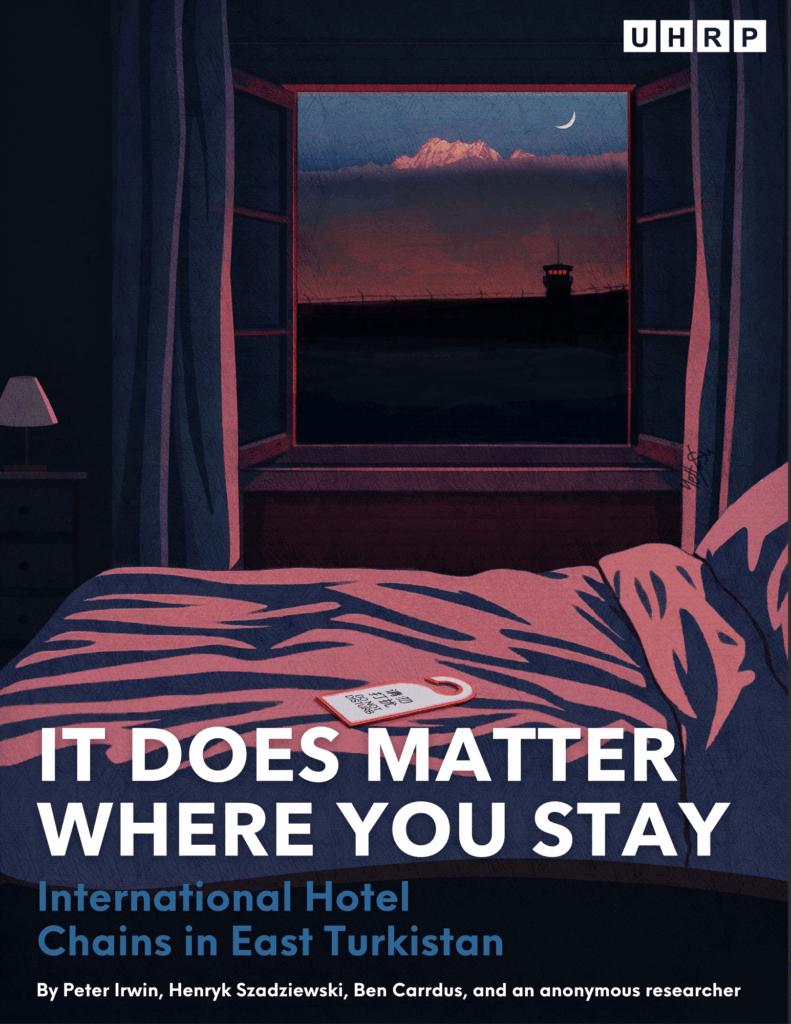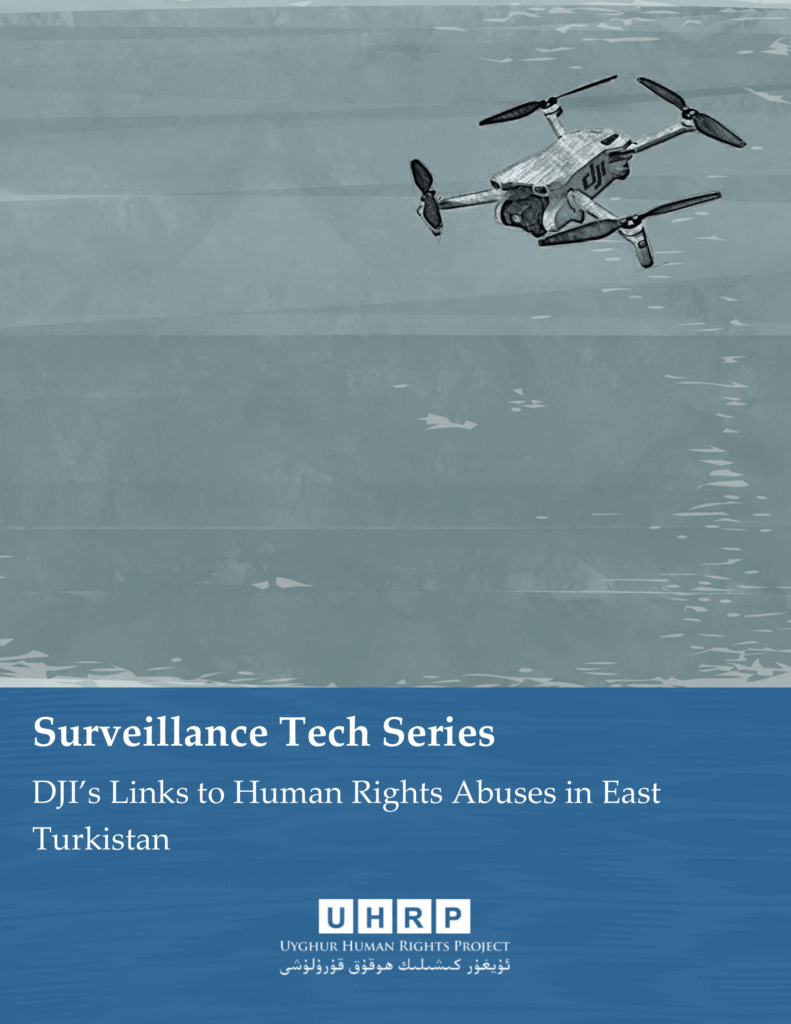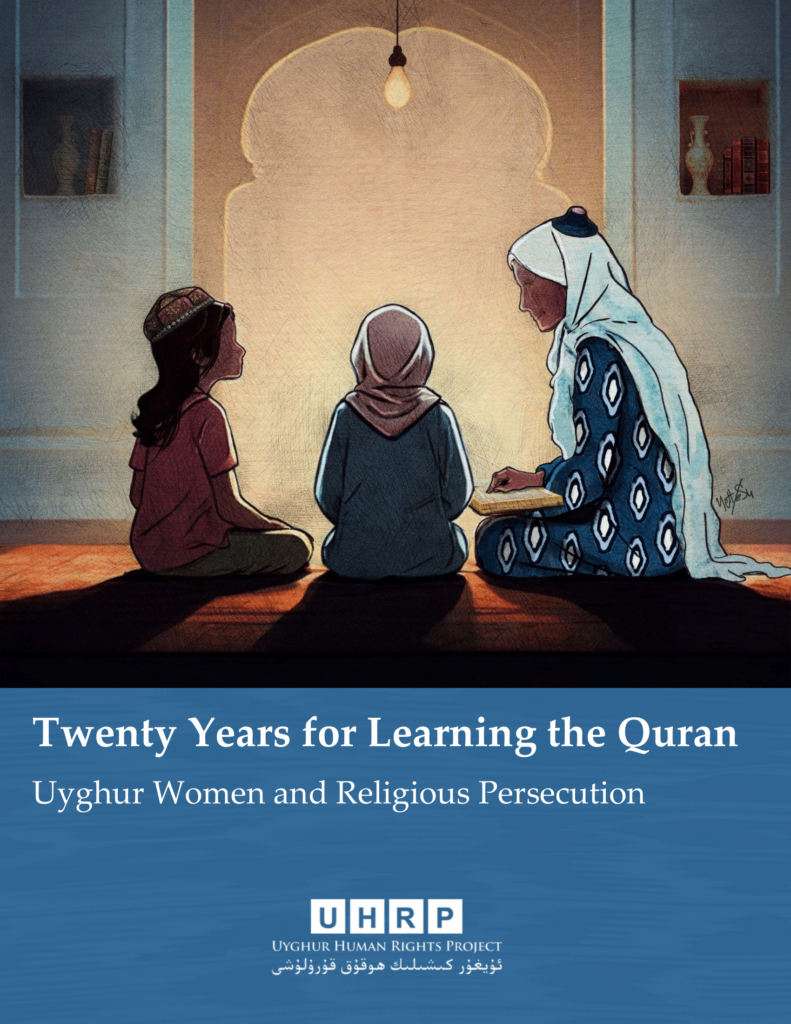Discrimination, Mistreatment and Coercion: Uyghurs Face Severe Labor Rights Abuses in China and East Turkestan

For immediate release
April 5, 2017 11:00 am EST
Contact: Uyghur Human Rights Project +1 (202) 478 1920
A Uyghur Human Rights Project report by Greg Fay. Download the full report in English here.
Unemployment is one of the biggest challenges facing the Uyghur people in East Turkestan. The primary driver of Uyghur unemployment is ethnic discrimination. A new report from UHRP analyzes the sources and manifestations of ethnic discrimination and other labor rights abuses affecting Uyghurs in East Turkestan and elsewhere in China. In addition to structural disadvantages obtaining and retaining non-agricultural work, the vast majority of Uyghurs who work in agriculture face a unique set of violations to their labor rights. Furthermore, those in the Chinese government’s labor transfer program, redistributing the so-called rural labor surplus to inner Chinese cities to work in factory jobs, also face a host of labor rights challenges. Chinese law and international obligations notwithstanding, the Chinese government is at best complicit and at worst itself a major agent of labor rights abuses against Uyghurs.
“China’s rhetoric that economic development will bring security to East Turkestan is a falsehood. The state designs policies that mirror the societal discriminations Uyghurs face in China and in East Turkestan. The economic inequities Uyghurs experience every day co-exist with the arrival of more Han Chinese migrants to East Turkestan under the conditions of Beijing’s so-called development drives,” said UHRP director, Omer Kanat in a statement.
Mr. Kanat added: “UHRP’s report documents the array of economic rights violations that represent the reality of Uyghur lives in China. The results of this research are alarming. UHRP documents issues over hiring discrimination, income inequality, unemployment and abuse of labor rights, particularly in rural areas. UHRP’s report asks the important question of who development benefits. Furthermore, these structural problems lead to the root causes of Uyghur grievances.”
Uyghur economist Ilham Tohti identified unemployment as one of the greatest obstacles between healthy relations between Uyghurs and Han Chinese in East Turkestan. Specifically, he found that only a narrow range of jobs is available to Uyghurs outside of agriculture owing to widespread ethnic hiring discrimination. Numerous sociological studies have demonstrated the lack of Uyghur representation in high status and high paying sectors.
Analysis of recruitment announcements in the civil service industry reveals that Uyghurs face high levels of ethnic discrimination in the state sector. Most egregious is the XPCC, which employs 86 percent Han workers, and has frequently posted recruitment announcements reserving the majority for Han. In the education sector, the government’s implementation of the “bilingual education” program has resulted in job losses for Uyghurs and recruitment ads frequently reserve positions for Han.
Whereas most job ads directly list Han ethnicity as a requirement, several positions stated the reason that the jobs would not hire Uyghurs is because they could not offer halal food to Uyghurs or Muslim employees. In a separate search, UHRP identified a low rate of positions that required Uyghur language, indicating the low prestige of Uyghur language for employability.
Language discrimination is, in fact, a frequent cause for discrimination against Uyghurs, as several studies have documented. Particularly since the government has reduced services in the Uyghur language, jobs using the Uyghur language have subsequently been reduced, according to an interview for the report. UHRP’s job search and government employment statistics confirm this trend. Another major factor restricting Uyghurs’ access to employment is a lack of social capital, referred to as connections, or “guanxi” in Chinese. Another major impediment to employment equality is the increased administrative cost of hiring Uyghurs that results from government efforts to monitor Uyghurs. This includes special registration procedures and reporting to public security, particularly since the July 5 Incident. In addition to discrimination against Uyghurs generally, Uyghur women face targeted discrimination, as reflected in several job postings and recruitment surveys.
Rural Uyghurs face different kinds of labor violations aside from the employment discrimination that prevents them from seeking non-agricultural jobs. For example, in rural southern areas of East Turkestan, forced labor is a common practice, in a government program called hashar in the Uyghur language. This program requires 4 to 11 hours a day of unpaid labor on public works projects, with strict penalties for non-participation, and represents a major violation of Uyghurs’ labor rights. Not only does the hashar program eliminate jobs that Uyghurs should be paid for, it also prevents them from performing their own agricultural work.
The result of economic exclusion of rural Uyghurs is what China terms a rural labor surplus. The solution has been a labor transfer program to bring Uyghurs both to major cities in East Turkestan and to cities in inner China. The program was launched in 2006 and at that time the prime targets were young women. UHRP reported in 2008 that the women were recruited by coercive means, that they were not paid at the rates they were promised, and that working conditions in the eastern factories were illegal. Nevertheless, the Chinese government continued to expand the program. Meanwhile, government statistics also described a labor shortage in East Turkestan, encouraging Han to migrate to the region.
Uyghurs experience poor labor conditions in inner China that not only violate Chinese labor laws but also expose them to intense ethnic hatred. On June 29, 2009, at the Xuri toy factory in Shaoguan, Guangdong Province, a mob of Han workers attacked and murdered a number of Uyghur workers. A government cover-up quickly obscured details of the incident, which appeared to result from false accusations that the Uyghur workers had raped a Han woman. Two Uyghurs were reported dead and 118 injured, but other reports indicated a higher death toll of Uyghurs. The Shaoguan incident took place in the context of serious labor rights abuses of all workers in the toy factory. A China Labor Watch analysis of the incident underscored the extremely poor factory conditions, low wages, and strained labor relations.
The severe ethnic discrimination facing Uyghurs in China contravenes both domestic and international laws. Internationally, the ILO’s prohibition of racial discrimination and the Convention for the Elimination of All of Racial Discrimination protects both against any form of discrimination on the part of the state as well as rights to equal pay for equal work. Domestically, China’s Constitution, Labor Laws, and Regional Ethnic Autonomy Law (REAL) clearly state that ethnic minorities should receive equal opportunities in the job market. In fact, article 28 of the implementing provision for the REAL purports to give priority to ethnic minorities for government positions.
China further violates both international and domestic law through its forced labor program. Notably, it violates several ILO conventions banning forced labor, which China has not ratified, as well as the International Covenant on Civil and Political Rights which explicitly bans forced labor. Domestically, China’s constitution assures that freedom in the PRC is inviolable, and China’s labor laws further guarantee limits on the working day, minimum wages, and prohibitions against deducting or delaying wages.
FEATURED VIDEO
Atrocities Against Women in East Turkistan: Uyghur Women and Religious Persecution
Watch UHRP's event marking International Women’s Day with a discussion highlighting ongoing atrocities against Uyghur and other Turkic women in East Turkistan.



